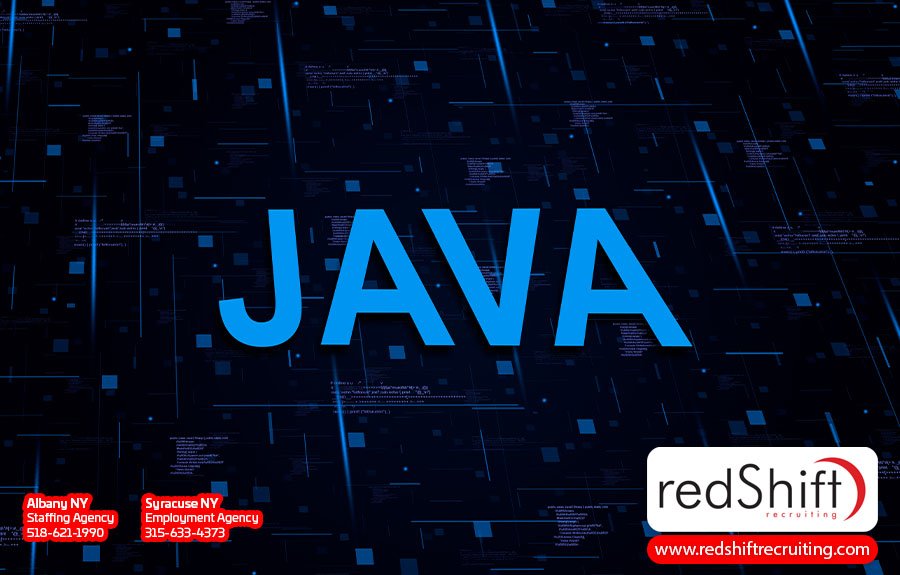Exploring Different Career Paths for Java Developers
Given Java's widespread usage and versatile capabilities, skilled Java developers have more career options than they may realize, spanning domains from mobile and web development to data science and cloud infrastructure. While jobs in backend, front-end, or full stack development are familiar territories, it can be easy to get siloed in these roles, limiting your exposure to new challenges and broader opportunities. If you're ready to step out of your comfort zone and expand your professional horizons, this article is your gateway to unexplored territories in Java development. Whether you want to elevate internal systems as a cybersecurity expert, wrangle big data, or architect cloud-native microservices, this article will guide you through some of the surprising and versatile directions your Java coding skills can take your career.
Overview of Java Development
Known for its versatility and robustness, the Java programming language is a cornerstone of software development. As an object-oriented programming language, Java offers a rich ecosystem that supports various application types, from web applications to mobile apps, and enterprise-level solutions.
Central to Java's success and popularity is the Java Virtual Machine (JVM), an engine that allows Java applications to run on virtually any hardware, ensuring portability and efficiency. This feature, coupled with the language's security and reliability, makes Java a preferred choice for organizations worldwide. The Java EE platform further extends Java's capabilities, enabling developers to build and deploy scalable, multi-tiered enterprise applications. This platform, along with Java's comprehensive libraries and frameworks, equips developers with the tools needed to tackle a wide array of software development challenges.
The ongoing evolution of Java in modern technology reflects its adaptability to cutting-edge trends in software development, from cloud computing to microservices architecture. This evolution is crucial to ensuring that Java developer jobs remain diverse and aligned with the demands of the modern digital economy. Its adaptability benefits all levels of developers, from junior Java developers learning the ropes to mid-level Java developers, senior developers, and Java architects shaping complex systems. With strong community support and continuous updates, the Java Virtual Machine (JVM) plays a significant role in facilitating these advancements, making Java a relevant and powerful tool for both current and future software development projects.
The diversity and adaptability of Java make experienced Java developers highly sought-after in the technology sector. A Java developer career offers a range of opportunities for growth, starting with entry-level positions for junior Java developers, who begin their journey mastering the fundamentals, and advancing to specialized positions like Java EE Developer and Java Architect. Whether you are a junior or senior developer, understanding and leveraging the full potential of Java's capabilities is key to career growth and development. In the following sections, we’ll explore how Java developers can use their skills to pursue diverse and exciting career paths in areas such as mobile app development, cybersecurity, big data, cloud computing, and more.
Exploring Backend Development
In the realm of backend development, Java developers have the opportunity to delve deep into the server-side aspects of web applications. This role is crucial as it involves the creation and maintenance of the technology needed to power the user-facing side of websites and applications. Backend developers focus on server-side logic, databases, API (Application Programming Interface) integration, and ensuring data consistency across the entire application. Their expertise in the Java programming language enables them to build robust, efficient systems that form the backbone of web applications, effectively writing code and developing software that caters to the intricate needs of businesses and their users.
A Java programmer working in backend development works with powerful Java frameworks like Spring Boot and Hibernate. These frameworks offer a suite of pre-built modules and tools designed to simplify complex tasks such as database integration, session management, and handling HTTP requests. Mastery of these technologies not only enhances efficiency but also boosts a developer’s marketability in the software industry.
In addition to technical proficiency, successful backend development also requires soft skills such as strong collaboration and communication skills. These skills enable Java developers to engage effectively with frontend teams, database administrators, and project managers, which is vital to ensuring seamless integration and functionality of the end product. This interdisciplinary collaboration underscores the importance of understanding not just the backend but also how it interacts with other parts of a web application, elevating Java programmers from being simply technically adept to becoming invaluable team players in any development project. From here, as backend developers expand their skill set, they can transition into roles like full-stack developer, blending both front and backend skills, or specialize in burgeoning areas like cloud computing or big data analytics. The high demand for proficient backend web developers opens a gateway to a multitude of opportunities across various sectors, ensuring a dynamic and rewarding career path for those skilled in Java-based backend development.
Mobile App Development With Java
In the field of mobile application development, the role of a Java Android developer is pivotal in shaping engaging and efficient mobile experiences. However, Java's versatility is not limited to Android applications; it also plays a crucial role in cross-platform mobile development, enabling Java code to be used in various mobile environments beyond just Android. This versatility opens up a wealth of opportunities for Java developers in the mobile app sector, including working on enterprise software solutions and hybrid web applications. Skills in Java enable developers to create applications that are not only high-performing but also scalable and adaptable, meeting the diverse and evolving needs of today's mobile users.
A software engineer specializing in Java-based mobile app development will leverage a mix of web frameworks and mobile development tools to craft seamless user experiences across different platforms. Their responsibilities will likely encompass the full development lifecycle, from conceptualizing and designing app features through debugging and performance optimization, while collaborating with UI/UX designers and other teams to ensure a cohesive end product.
In addition to technical skills, a Java developer in the mobile app sector must also stay abreast of the latest trends in mobile technology and user experience design. Understanding the nuances of different mobile platforms, including their user interfaces and specific design guidelines, is essential for creating apps that resonate with users. This knowledge, combined with Java's capabilities, allows for the creation of intuitive, user-friendly applications that excel in both functionality and aesthetics. Furthermore, knowledge of emerging technologies like augmented reality (AR) and machine learning can open doors to innovative application development, further diversifying the potential applications of Java in the mobile landscape.
Career progression in this field can lead beyond the role of a senior Java developer, including opportunities in roles such as mobile project manager, mobile technology consultant, or even transitioning into areas like mobile application security, where your Java expertise is invaluable. This diverse range of career paths showcases the dynamic nature of Java in the field of mobile application development, continually offering new challenges and growth prospects.
Java Development for Web Applications
In web development, Java stands out for its robustness and adaptability, making it a top choice for software engineers. This programming language is particularly renowned for its efficacy in building enterprise applications, catering to a diverse range of business needs across various industries. A web developer proficient in Java is well-equipped to construct sophisticated web applications that not only offer user-friendly interfaces but also ensure high performance. Java's strength lies in its ability to develop resilient server-side code, which is integral for interacting with databases, managing complex data structures, and delivering dynamic content to users. This capability makes Java a reliable choice for businesses seeking scalable and efficient web solutions.
The field of web development is constantly evolving, requiring software engineers to engage in continuous learning and skill enhancement. Staying updated with the latest advancements in Java and related technologies is crucial for maintaining a competitive edge in the industry. This includes adapting to modern development practices such as Agile methodologies, DevOps integration, and understanding cloud-based deployment, which are becoming increasingly important in Java development for enterprise applications. For a web developer, this might also involve gaining expertise in front-end technologies to better collaborate with full-stack development teams and understand end-to-end application development. Embracing these practices not only enriches the career path of Java developers but also ensures that the web applications they build are modern, efficient, and aligned with current industry standards.
The career path for Java developers in web development offers significant growth and learning opportunities. As developers gain experience, they often advance into senior roles, taking on responsibilities such as designing intricate database architectures and optimizing the performance of web applications. Java's extensive ecosystem, comprising a broad range of frameworks and libraries, empowers developers to innovate and push the boundaries of traditional web applications. Whether it's integrating new technologies or developing custom solutions for complex business challenges, Java offers a versatile and powerful toolset for creative and advanced web development, paving the way for software engineers to excel and evolve in their careers.
Exploring Java and Cybersecurity
In the increasingly crucial field of cybersecurity, Java's role in securing systems and thwarting cyberattacks is becoming more prominent. As a robust and secure programming language, Java provides a solid foundation for designing and implementing database architectures that are resilient to unauthorized access and data breaches. Java's comprehensive security libraries and frameworks are essential tools for protecting sensitive information and mitigating risks, and senior developers with a specialization in Java's security features are highly valued in this sector. This expertise is particularly important in areas such as secure application development, where understanding Java's security mechanisms can make a significant difference in the overall security posture of software solutions.
The evolving nature of this industry makes staying current with the latest security threats and trends critical. This includes not only understanding the theoretical aspects of security but also practical, hands-on experience with Java's security features and tools. Regular training, attending workshops, and obtaining certifications related to cybersecurity can greatly enhance a Java developer's ability to respond effectively to new challenges. This ongoing education is essential for those looking to excel in Java career opportunities within cybersecurity, as it allows them to develop and maintain secure systems that are robust against continuously evolving cyber threats. A commitment to learning and adaptation is a key driver in the career growth of Java professionals in the cybersecurity domain.
There are many career options for those interested in merging their skills in computer science, cybersecurity, and Java development. This field offers diverse roles, such as security analysts, who evaluate and improve the security of systems; penetration testers, who proactively test and exploit vulnerabilities to strengthen security; and software developers focused on secure coding practices. These roles not only require technical expertise in Java and security principles but also a thorough understanding of the latest cyber threats and mitigation techniques. The demand for professionals skilled in both Java and cybersecurity is growing rapidly, reflecting the importance of secure software development in the digital age.
Big Data and Java
For those interested in big data, Java's significance cannot be understated. It serves as a formidable tool for efficiently processing and analyzing large volumes of data. Java's extensive set of libraries and frameworks, coupled with its strong capabilities in handling data structures and algorithms, makes it particularly well-suited for building scalable big data solutions. Senior Java developers are often at the forefront of developing complex applications that can process and analyze vast datasets, extracting meaningful insights. These applications benefit from Java's platform independence, ensuring they perform consistently across various computing environments. This aspect is crucial in big data projects, which often involve heterogeneous systems and a need for cross-platform operability.
The growing reliance on big data across various sectors, such as finance, healthcare, and e-commerce, amplifies the demand for skilled Java professionals and opens up a wide array of career opportunities. These range from big data analytics, where Java is used to process and interpret data, to the development of large-scale data processing systems. For those seeking an entry-level position in data analytics or engineering, learning Java provides a solid foundation not only in general programming concepts but also in specific areas critical to big data, such as distributed computing and performance optimization. Proficient Java developers can progress to specialized job titles such as Big Data Engineer, Data Architect, or Java Big Data Developer. Each of these roles requires a deep understanding of Java's application in handling, processing, and analyzing large data sets. Big Data Engineers focus on developing, testing, and maintaining big data solutions, while Data Architects design the framework and strategy for data management. Java Big Data Developers are often tasked with implementing big data applications and algorithms using Java technologies. Additionally, roles like Data Scientist or Machine Learning Engineer may also be within reach for Java developers who further their skills in data analysis and machine learning. Embracing Java in the context of big data equips developers with the skills needed to tackle the challenges of modern data-centric applications, making it an invaluable asset in their professional toolkit.
Java Development in the Cloud
Cloud computing has revolutionized the way software is developed, deployed, and managed, offering a range of new opportunities, particularly in Java development. In this environment, Java's inherent versatility and scalability are instrumental for architecting cloud-native microservices and robust software solutions. The shift to cloud platforms has not only changed how applications are developed and deployed but also how they are managed, making Java an essential skill in the cloud domain. For those starting their careers, entry-level jobs in cloud development provide invaluable experience in utilizing Java within various cloud environments. These roles often involve working with an integrated development environment (IDE) that is tailored for cloud computing, allowing developers to efficiently build, test, and deploy applications directly to the cloud.
As one's career advances in Java cloud development, the job prospects broaden significantly. Developers can progress to senior-level positions, where they take on more complex challenges such as optimizing data structures for cloud-based applications or leveraging Java for machine learning projects within the cloud. In these advanced roles, Java developers may architect cloud-native microservices, designing systems that are not only scalable and efficient but also resilient and easily manageable. Additionally, a career in Java cloud development can lead to diverse and specialized job titles such as Cloud Application Developer, Java Cloud Engineer, Cloud Solutions Architect, or Cloud Systems Administrator. Each role demands a deep understanding of cloud technologies and Java's application within these technologies. For example, Cloud Application Developers may focus on creating and deploying Java-based applications on cloud platforms, while Java Cloud Engineers may specialize in designing and maintaining cloud infrastructure tailored for Java applications. Cloud Solutions Architects design overarching cloud strategies that integrate Java applications, and Cloud Systems Administrators ensure the smooth operation of these Java-enabled cloud systems. These varied roles underscore Java's significance in cloud computing and offer numerous avenues for career growth and specialization.
Alternative Career Paths for Java Developers
The skill set of a Java developer opens doors to a multitude of alternative career paths beyond traditional software development roles. Those with a talent for leadership and organization might find fulfilling careers as a project manager or scrum master, where they can apply their technical knowledge to manage projects and lead agile development teams. For Java developers interested in teaching, there's a rewarding opportunity to share their knowledge and passion by becoming educators or trainers, either in academic institutions or through workshops and online courses. This path not only enhances one's own understanding of Java but also contributes to the growth of the next generation of developers.
The field of Java development also intersects with innovative technologies such as blockchain, VR development, quantum computing, and AI assistants, and Java developers with an interest in these cutting-edge fields can transition into roles that focus on the development and implementation of these technologies. For instance, leveraging Java for blockchain development can involve creating decentralized applications or smart contracts, while VR development may see Java developers creating immersive experiences and simulations. Quantum computing and AI assistants, although relatively new fields, offer exciting career prospects for Java developers willing to delve into research and development, potentially leading to breakthroughs in computing and AI. For those seeking entry-level Java jobs to build experience, roles in these emerging areas can be especially beneficial, as they provide a platform not only for skill enhancement but also for exploring innovative applications of Java.
For those with a passion for innovation and problem-solving, entrepreneurship presents another unique avenue for Java developers to apply their technical skills. Starting a tech business or becoming a consultant allows for the application of Java expertise in diverse scenarios, from server-scripting to creating custom software solutions for clients. Holding a Java certification bolsters credibility and can be a significant advantage in these endeavors.
Ultimately, the range of job titles and career prospects available to Java developers is vast and varied, offering numerous paths for professional growth and exploration in the exciting world of technology. With the right additional education, training, and experience, Java developers can embark on these innovative career journeys, enriching their expertise and contributing to cutting-edge developments across various industries. The adaptability of Java skills is a testament to the endless possibilities within the tech realm, making it an exciting and promising field for those ready to embrace new challenges and opportunities.
Frequently Asked Questions
What Are the Main Differences Between Java Development for Web Applications and Mobile App Development With Java?
The main differences between Java development for web applications and mobile app development with Java lie in the platforms they target. Web applications focus on building software that can be accessed through browsers, while mobile app development focuses on creating applications specifically for smartphones and tablets.
Web applications require knowledge of front-end technologies like HTML, CSS, and JavaScript, while mobile app development with Java involves using Android Studio and understanding the Android framework. Both paths offer exciting opportunities for growth as a Java developer.
How Can Java Developers Transition Into Cybersecurity Roles?
To transition into cybersecurity roles, leveraging your Java coding skills and development experience is a great starting point. A strong grasp of Java frameworks will be beneficial, as many web applications built with these frameworks require rigorous security measures.
Begin by deepening your understanding of security concepts, such as network protocols and encryption algorithms. Familiarize yourself with industry-standard tools like Wireshark and Metasploit. Additionally, consider pursuing certifications like Certified Ethical Hacker (CEH) or Security+ to demonstrate your knowledge and commitment to the field of cybersecurity. Networking with professionals in the field and participating in cybersecurity competitions can also help you establish credibility and open doors to new opportunities.
What Are Some Popular Tools and Frameworks Used in Java Development for Big Data?
There are several popular tools and frameworks you can explore when working with big data in Java development. For example, Apache Hadoop is widely used for distributed processing of large datasets, while Apache Spark provides a fast and flexible option for data processing and analytics. Additionally, tools like Apache Kafka and Apache Cassandra are commonly used for real-time streaming and scalable data storage, respectively. These are just a few of the powerful tools that can help you tackle the challenges of working with big data in your Java career.
How Does Java Development in the Cloud Differ From Traditional Java Development?
In cloud-based Java development, you'll encounter some differences from traditional methods. Instead of running your applications on local servers, you'll utilize virtual machines or containers in the cloud. This database architecture allows for greater scalability and flexibility, as resources can be easily provisioned or scaled down based on demand. Additionally, cloud platforms provide various services, such as storage, databases, and networking, that can be integrated into your applications. Overall, Java development in the cloud offers a more dynamic and scalable environment for building and deploying applications.
What Certifications or Skills Can Help Java Developers Excel in Alternative Career Paths?
To excel in alternative career paths as a Java developer, various certifications and skills can help you stand out, though these will depend on the specific field you pursue. Certifications like AWS Certified Developer, Oracle Certified Professional, and Microsoft Certified: Azure Developer Associate can enhance your expertise in cloud-based solutions or database management. For those interested in big data and analytics, certifications like Cloudera Certified Professional or Apache Kafka Certification could be valuable.
Additionally, acquiring skills in other programming languages like Python or JavaScript is beneficial, broadening your scope for opportunities in web development, data science, and even machine learning. Understanding DevOps practices and tools, such as Docker and Jenkins, is also advantageous for Java developer jobs that involve continuous integration and deployment.
Conclusion
As we’ve explored, talented Java developers have an immense diversity of potential career pathways to choose from. Whether you aspire to create cutting-edge AI assistants utilizing Java's robust processing capabilities, build virtual worlds leveraging its high-performance computing, or secure critical systems with its advanced security features, Java skills can help you launch yourself into a specialty aligned with your specific interests. To thrive in these dynamic fields, maintain an open and growth-oriented mindset, actively engage in continuous learning, and stay connected with the Java community. By playing to your strengths and embracing the ever-evolving landscape of Java, you can find the right career path to match your passion and skills.
Article Author:
Ashley Meyer
Digital Marketing Strategist
Albany, NY






